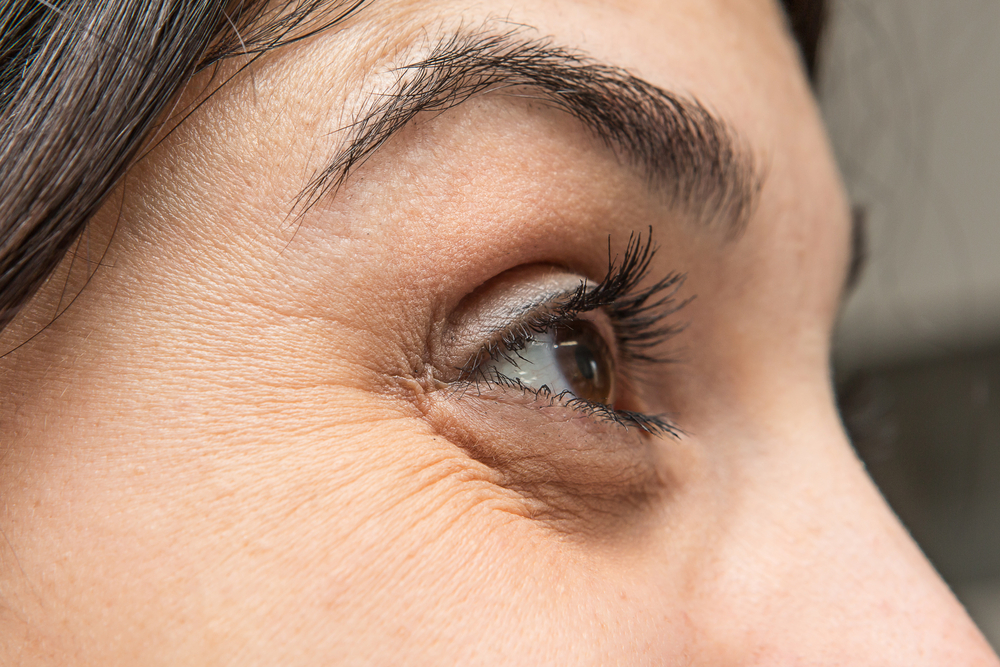Ophthalmic plastic surgery refers to a wide range of procedures that involve the eye and related structures, like the brow, socket, and tear ducts.
If you’ve heard of oculoplastic surgery, then you might be confused about what exactly it involves. All you know is that your co-worker saw an oculoplastic surgeon a few weeks ago and now her eyes look more rested and youthful. You also recall your brother-in-law raving about his procedure, which corrected an eye condition that had been plaguing him for months. Could these be one and the same? What exactly is oculoplastic surgery and what can it do for you?
We’ve taken some time to unpack the ins and outs of oculoplastic surgery as we answer some of your most common questions regarding this lesser known but incredibly valuable practice.
What is Oculoplastic Surgery?
Oculoplastic surgery, sometimes called oculoplasty, oculoplastics, or ophthalmic plastic surgery, refers to a wide range of procedures that involve the eye and related structures, like the brow, socket, and tear ducts. So when we say “wide range of procedures,” we mean really wide.
Dozens of procedures from ptosis repair surgery that corrects drooping eyelids to evisceration, one of three eye removal procedures, fall under the umbrella of oculoplasty. These surgeons sometimes even administer injectables, like Botox, around the eye.
Oculoplastic surgery can be used to reconstruct, rejuvenate, or both. It can be used to treat a variety of eye conditions or it can be purely cosmetic. Given that it’s not just one procedure, it’s difficult to talk about side effects and other common procedural concerns. Know that the answers in this article are broadly applied and that you will still need to consult with your surgeon regarding the specifics of your procedure.
What are the Most Common Oculoplastic Procedures?
When it comes to cosmetic eye surgery, the most common oculoplastic procedure is the blepharoplasty. This is a form of plastic surgery commonly referred to as an eye-lift. Blepharoplasty seeks to remove excess skin from the upper or lower lid, skin that often comes about from aging and contributes to a “baggy” appearance. Brow lifts are also often associated with oculoplastic surgery, but are less centered around the eye.
Other common procedures include repair of ptosis (droopy eyelids), ectropion eyelids (turned outward), entropion eyelids (turned inward), and blocked tear ducts. We cover the medical conditions handled by oculoplastic surgery in more detail below.
What Conditions does Oculoplasty Treat?
Most oculoplastic procedures are geared toward specific eye-related conditions. The following list contains both common and uncommon conditions that can be treated with oculoplasty. Keep in mind that oculoplasty treats a very wide variety of ailments, some of which may not appear in this list.
- Ptosis – This refers to one or both upper eyelids drooping over the eye. Ptosis can be mild or complete, obscuring vision from that eye completely. It can be brought on by certain diseases, drugs, or injury.
- Entropion – This refers to when the eyelid folds inward toward the eye. When this happens, the constant rubbing of epidermis (outer skin) and eyelash against the surface of the eye can cause irritation. It often results from the weakening of the eyelid, which itself can come from aging or injury.
- Ectropion – This is the opposite of entropion, referring instead to when the eyelid folds outward from the eye. This leaves the underskin of the lid exposed and can lead to irritation of the lid itself. Like entropion, ectropion can result from weakening of the lid due to aging or injury.
- Thyroid Eye Disease (TED) – Thyroid conditions, such as Grave’s Disease, can often affect the eye. When this happens the tissue behind the eye becomes seriously inflamed, pushing the eye outward and giving it a “bulging” appearance. Oculoplasty can treat the inflammation, but it will not resolve the underlying thyroid disease.
- Cancer and Growths – Tumors or lesions on or around the eye can be removed via oculoplasty, whether they or cancerous or benign. If they are cancerous, additional treatment may be required.
- Blocked tear ducts – Although most common in infants, adults can also get blocked tear ducts as they age or from trauma, infection, and tumors. When tear ducts become blocked, they may produce excessive tears. There may also be crusting, discharge, and swelling. Tear duct surgery, also called lacrimal surgery, can correct this.
- Injuries – Trauma can cause many of the aforementioned conditions or simply damage the eye or eye socket. Oculoplasty repairs and reconstructs damaged sockets.
Of course, you may only be looking to oculoplasty to combat the signs of aging around your eyes, including puffiness, drooping lids, and falling eyebrows.
What is An Oculoplastic Surgeon?
Oculoplastic surgeons are often confused with ophthalmic surgeons. True, they both work with the eyes, but they are not the same thing. Ophthalmic surgeon is basically another name for opthamologist. They do conduct certain surgical procedures on and around the eye and there may be some overlap between them and oculoplastic surgeons.
However, a true oculoplastic surgeon is an opthamologist who underwent additional training after their ophthalmology residency. In North America, this means two additional years of training in a program approved by the American Society of Opthalmic Plastic and Reconstructive Surgery (ASOPRS).
Your surgeon does not have to be a member of ASOPRS to be a certified and skilled oculoplastic surgeon, but he or she does have to have completed the necessary training.
What Can I Expect From a Consultation?
Consultations are common practice for a variety of medical procedures and serve several purposes. First, it’s an interview for your prospective plastic surgeon. This is your opportunity to learn more about the surgeon and the treatment options, allowing you to opt out if you’re not comfortable.
This is also when you and your surgeon review your condition and/or desired outcome and decide on a procedure that best suits your needs. When the consultation is done, it’s up to you to choose whether to move forward with the recommended procedure.
How Should I Prepare for My Surgery?
Your surgeon will discuss the specific ways in which you should prepare yourself for surgery. However, most oculoplastic surgeries require similar preparation.
- Avoid blood thinners for a couple of weeks prior to surgery. In other words, no aspirin and no alcohol.
- If you’re a smoker, stop smoking 2-3 weeks prior to surgery. Smoke can easily get in the eyes and will interfere with the healing process.
- Make sure to get routine tests done with your surgeon or primary physician to make sure surgery is a safe option for you. Typically, this means going for blood tests and an EKG.
- Schedule someone to drive you home after surgery. This is an absolute must. It will not be safe to drive yourself. If possible, ask this person to stay with you for 8-12 hours while at home in case you experience any immediate complications.
- Finally, plan ahead and have some easily accessible supplies waiting for you, including cold packs and pillows.
In addition to what’s listed above, note that you won’t be returning to work for some time afterward. Typically, oculoplastic surgery patients should expect to take 1-2 weeks off of work after the procedure.
What Can I Expect from Surgery?
Again, the process may slightly differ depending on the procedure. Arrive 1 or 2 hours early to be prepped for the surgery. When it’s time, you’ll be given either general anesthesia or local anesthesia and a sedative. You might also be supplied with special lenses to protect your eyes during the surgery.
Most doctors will allow you to go home on the same day as your surgery provided you have the means of doing so.
What is Recovery Like?
Depending on the procedure performed, recovery can feel a bit daunting. After all, for several days you won’t be able to see very well. You’ll also need to take great care when sleeping and washing and are likely to feel tired and sluggish. However, your sight will gradually improve and within a week or two, you’ll be ready to take on the world again.
Recovery can also be mildly painful. The surgical area will likely bruise and swell at first, making you uncomfortable. However, normal recovery pain should be manageable with over-the-counter pain relievers.
You might also these common, temporary side effects:
- Increased tear production
- Sensitivity to light
- Sensitivity to wind
- Double vision
When Should I Call the Doctor During Recovery?
The short answer is call the doctor whenever you feel that something isn’t right. However, since you’ll want to avoid notifying your surgeon of every single ache and pain you suffer, you should perhaps first take a look for some tell tale signs that the area isn’t healing properly.
Signs of infection:
- You’re experiencing pain that won’t be mitigated by over-the-counter pain relievers.
- Your pain is accompanied by nausea.
- There’s unusual discharge suddenly coming from the area, typically discharge that is bloody or contains pus.
Signs of damage to the cornea of your eye:
- Your vision worsens significantly, especially after it’s already started to improve.
- You see flashing lights or dark spots.
Signs that the wound isn’t healing:
- Excessive bleeding, especially after bleeding has already begun to subside.
- Incision is separating instead of closing.
In preparation for your surgery, educate yourself about these signs. The sooner you visit your surgeon when something starts to go wrong, the greater chance you’ll have of correcting the problem with no long-term effects.
What Can I Do to Help Recovery?
Taking the time to properly care for yourself and the surgical site will go a long way toward preventing complications and mitigating unpleasant side effects. If you recall, we suggested having cold packs ready and waiting before you go to get the surgery done. Now is the time to use them. Using cold packs liberally during this time will help reduce swelling and pain. Make sure to wrap the cold pack in a towel or cloth. Of course, that’s just the beginning. You must also:
- Avoid raising your blood pressure for approximately 3 weeks. This means no strenuous exercise or stressful activities. This is one more reason why you took all of that time off of work.
- Avoid alcohol and medications that thin the blood (like aspirin) for at least a week. Blood thinners can make minor bleeding worse.
- Prop your head up on pillows while you sleep. Sleeping with your head too far back could cause fluid to collect near your eye and interfere with the healing process.
- Bathe carefully and closely follow your surgeon’s instructions about changing the dressings on your eye. It’s important to keep the area clean in order to avoid infection. At the same time, however, you don’t want chemicals or hot sudsy water too near the incision either.
Above all else, listen to your surgeon. Some of these recommendations may vary. Your surgeon knows the particulars of your case and will definitely provide you with the most accurate insight.
What are the Long-Term Complications of the Surgery?
Oculoplasty is major surgery. As such, it can be risky. Most individuals who get oculoplastic surgery experience no complications. However, some individuals could experience long-term bruising, unsightly scarring, and even blindness.
Other long-term complications include eyelids that won’t close completely due to having too much eyelid skin removed, hematoma, a swelling or growth caused by clotted blood, and asymmetrical eyes. This is not to scare you away. If you choose a qualified oculoplastic surgeon for your surgery, you’re in good hands. Just know that surgery is not to be taken lightly.
It’s time to think about what oculoplastic surgery can do for you. If there’s something you’ve been dying to change or something that’s been making your eyes uncomfortable, you’re on the right track. Schedule a consultation and remember that the fortune favors the informed.









